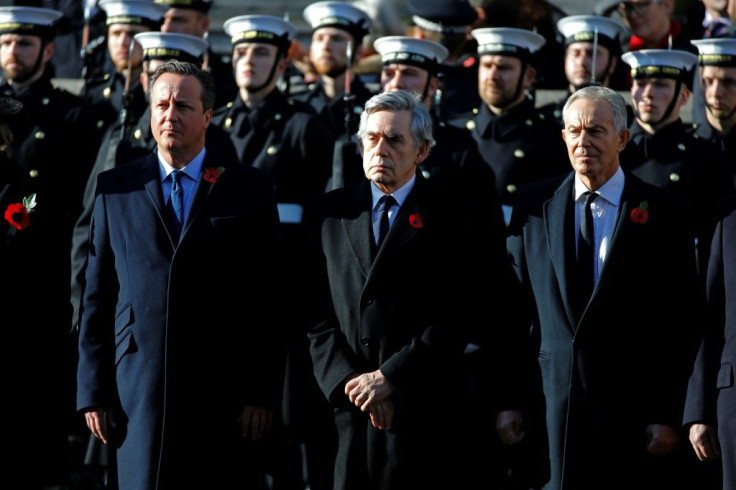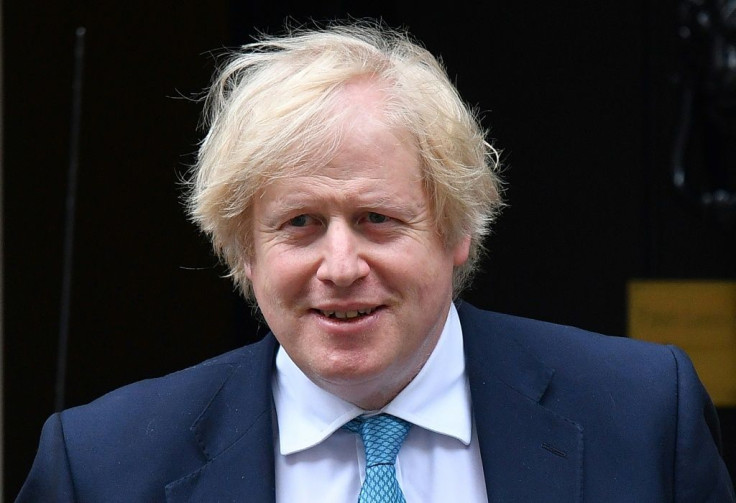Former PMs Rap Johnson Over UK Aid Agency Abolition

Three former premiers on Tuesday attacked plans to merge Britain's overseas aid agency with the foreign ministry, which Prime Minister Boris Johnson insists will help Britain cope better with Chinese and Russian threats.
In a highly exceptional move, ex-Labour party leaders Tony Blair and Gordon Brown joined Johnson's Conservative predecessor David Cameron in criticising the plan.
Cameron called the decision a "mistake" while opposition leaders and charities also spoke out, voicing concern about the potential politicisation of development funding.
Johnson said the Department of International Development (DfID), set up in 1997 to administer British aid, was an "artefact of a benign era" and will be merged with the Foreign Office to form a new "Whitehall super-department".
"The Foreign Secretary (Dominic Raab) will be empowered to decide which countries receive or cease to receive British aid," Johnson told lawmakers in parliament.
Funding decisions now needed to take into account the latest geopolitical threats, he added.
"We give 10 times as much aid to Tanzania as we do to the six countries of the west Balkans who are acutely vulnerable to Russian meddling," Johnson said.
The new department -- to be called the Foreign, Commonwealth and Development Office -- will put "extra throw-weight and megawattage" behind Britain's foreign diplomacy when it is established in early September, he added.
Britain's overseas aid budget -- worth ?15 billion (17 billion euros, $19 billion) -- has been a sore point for some right-wing lawmakers and government-supporting newspapers.
Johnson told MPs it had for too long been treated like "some giant cashpoint in the sky" and bore no relation to "UK interests or... values that the UK wishes to express, or the priorities, diplomatic, political or commercial, of the Government of the UK".
But Labour party leader Keir Starmer told the House of Commons the merger was intended to "deflect attention" from the country's high coronavirus death toll and grim economic figures as it slowly emerges from lockdown.
Ian Blackford, leader of the Scottish National Party in the UK parliament, called the decision "shameful".

He accused the government of "blatantly using challenging domestic circumstances to wind down essential aid for the world's poorest".
Outside Westminster, reaction was rapid with Danny Sriskandarajah, the head of Oxfam GB, claiming the move would have a catastrophic impact for many.
"I think it's a backward step that risks costing millions of lives," he told the BBC.
"The UK has been known in the last couple of decades as a world leader on development and that's in part because we've had a specialist department that has had a laser sharp focus on ending extreme poverty."
Britain spends 0.7 percent of its economic output on international aid, more than other members of the G7 group of leading industrialised nations.
Johnson insisted that his government was committed to the target, with calls from lawmakers that the budget should be ring-fenced in the new department.
DfID has an international reputation in the development sector and is seen as a key soft power asset independent of government.
But it was the unusual intervention by three of Johnson's Downing Street predecessors which was arguably the most eye-catching of the responses.
As well as Cameron, who made his comments in a tweet, Blair, who was prime minister when his Labour government separated DfID from the Foreign Office 23 years ago, also attacked the decision.
In a series of tweets he called it a "wrong and regressive move", adding he was "utterly dismayed by the decision".
Blair's successor Brown, now a UN ambassador on global education, said DfID had lifted millions out of poverty.
"It's sad the government is abolishing one of the UK's great international assets," he said on social media.
© Copyright AFP {{Year}}. All rights reserved.





















